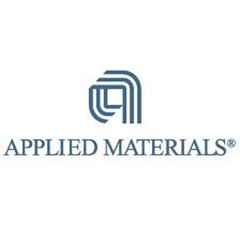· Latest technologies position Applied Materials at the forefront of driving high-efficiency cells and low cost of ownership
· System’s advanced precision and process control deliver high repeatability and yield
· New system builds upon successful, market-proven Solion platform
PARIS, France, September 30, 2013 – At the 28th European Solar Energy Conference and Exhibition (EU PVSEC) held this week in Paris, France, Applied Materials, Inc. today announced the next-generation Applied Solion® XP Ion Implant System that provides customers a cost-effective solution for manufacturing their latest high-efficiency photovoltaic (PV) cell designs. The Solion XP performs in-situ patterned doping, a process that enables the volume production of high efficiency crystalline silicon cells with exceptional yield and reduced cost by eliminating several yield-reducing manufacturing steps. Underscoring Applied’s technology leadership in driving the PV industry forward, Solion XP’s unique precision scanning architecture and scalable design supports processing more than 3,000 wafers-per-hour with high uptime and reliability allowing a significant reduction in cost-per-wafer.
“Solion XP represents a multi-generation technology extension designed specifically for PV manufacturing that will accelerate the industry roadmap and enable cell efficiencies of more than 22 percent at or below traditional cell and module costs,” said Jim Mullin, vice president and general manager of Solar Products for Applied Materials’ Energy and Environmental Solutions Group. “We’ve worked closely with our leading customers to develop a solution that addresses their most critical manufacturing challenges of yield, binning, cell performance, and cost. Solion XP’s architectural advantages enable high productivity and extendibility to two-dimensional precision patterning and N-type cell processes to help our customers meet the growing market demand for cost-efficient solar power.”
Manufacturers are transitioning to N-type solar cells from traditional P-type cells to significantly boost cell efficiencies, module power output and energy harvest to achieve a competitive advantage in overall cost-per-watt and differentiated products. High volume manufacturing of N-type cells requires advanced technical capabilities that include precision patterning and high-quality boron doping to eliminate process steps and simplify manufacturing. Solion XP technology with in-situ patterning precisely controls dopant depth, dose and placement of phosphorous and boron, enabling highly efficient activation and lower overall thermal budget for advanced cell structures on N-type substrates.
Along with enhanced patterning capabilities and increased system throughput, the Solion XP’s multiple pass vertical scanning architecture with closed loop control enables wafer-to-wafer repeatability for improved binning and yield. These unique capabilities solve high value manufacturing challenges and reflect Applied’s more than 30 years of production-proven implant expertise. Launched in 2011, the Solion platform has rapidly gained traction among the world’s leading PV solar cell and module manufacturers with more than 20 systems being used in full production to process millions of cells. The Solion XP extends customers’ capabilities to produce high-quality, high-efficiency PV modules with a proven, cost-effective and low-risk solution.
Applied Materials, Inc. (Nasdaq:AMAT) is the global leader in providing innovative equipment, services and software to enable the manufacture of advanced semiconductor, flat panel display and solar photovoltaic products. Our technologies help make innovations like smartphones, flat screen TVs and solar panels more affordable and accessible to consumers and businesses around the world. Learn more at www.appliedmaterials.com.



























